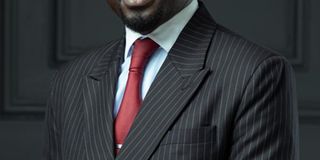Prime
Fifa and CAS set up an ad hoc division to handle World Cup disputes

IVAN OJAKOL
What you need to know:
This has in one way or another made international sports arbitration unique through the creation of what is termed an "ad hoc division of the Court of Arbitration for Sports” stationed at the sites of sports tournaments to help resolve disputes quickly and efficiently as and when they arise during the course big sports events.
The World Cup is around the corner and this column will run a series of Sports/Football Law articles on the World Cup and other legal matters incidental to the World Cup. This is the first of such articles.
Sports has long recognized arbitration as the most appropriate method for resolving the disputes that arise in the industry. Arbitration as a mode of dispute resolution has benefits that come with it; from flexibility, confidentiality, and efficiency, is expert-based, to mention but a few that attracted sports to it.
Beyond the Court of Arbitration for Sport (Cas) and other arbitration mechanisms under the auspices of international sports federations such as Fifa, there has been an increased taking advantage by sport of the wiggle-room that arbitration provides through constant innovation and expansion of the concept.
This has in one way or another made international sports arbitration unique through the creation of what is termed an "ad hoc division of the Court of Arbitration for Sports” stationed at the sites of sports tournaments to help resolve disputes quickly and efficiently as and when they arise during the course big sports events.
Akin to what happens whenever the Olympics are around the corner, Fifa followed suit and came up with this highly “specialized, swift and expedited” dispute resolution procedure dating back to the 2006 World Cup. The Olympics has run the same since the 1996 Olympic games.
The Qatar World Cup’s arbitration rules that provide for this special procedure are termed, “Arbitration Rules for the 2022 Fifa World Cup Qatar Final Round”
These ad-hoc divisions of CAS operate what is termed an "in situ" model whereby everything is located at the games, a hearing room, Arbitrators, Counsel, and staff. There usually is an Anti-doping division too.
At the Olympic games, these Tribunals usually handle cases involving; eligibility issues, doping violations, sporting nationality-disputes concerning the nationality of athletes, commercial restrictions on uniforms, disciplinary matters, bad sportsmanship concerns, and "Field of Play” cases.
As far as "Field of Play" is concerned, the consensus from CAS and other sports Tribunals is that sports Tribunals do not have jurisdiction over such cases (technical issues that happen on the field of play as per the rules of the game), and do not overturn them except in demonstrated circumstances of bad faith and/or arbitrariness.
At the Olympics, decisions are usually rendered within 24 hours. The time limit for The Panel of Arbitrators at the Qatar World Cup to render a decision is within 48 hours of the lodging of an application and can only be extended exceptionally by the President of the ad hoc Division where circumstances so require.
At the World Cup, The Panel of Arbitrators has the laxity to depart from normal CAS procedure and organize its procedure as it deems fit “while taking into account the specific needs and circumstances of the case. The Panel can also in circumstances that call for it hear a case ex parte (one side only-the applicant’s side without hearing the respondent) and have the power to grant preliminary relief.
This CAS ad hoc mechanism is very important for a tournament such as the World Cup as it allows the competition to proceed on schedule with few if any hiccups and most importantly ensures the integrity of sport.
On the flip side, it has been criticized in the past by especially lawyers who argue that given the short time limits, it is hard to guarantee a “fair hearing” in the true sense of the term. This arena of legal practice is not one where novices can tread as parties usually look for Counsel who are already established in Sports Law and not those who are just cutting their teeth in the discipline.
Ojakol is a Sports Lawyer, Partner at Matrix Advocates
and Law Lecturer at IUEA




